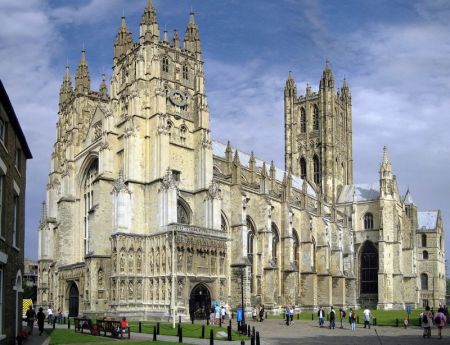Church of England 'Warmly Welcomes' UK's Plan to Ban Gay Conversion Therapy

The Church of England has voiced its support for the United Kingdom's plan to ban "conversion therapy," while other Christian groups have warned of the free speech implications of such restrictions.
On Tuesday, the U.K. government rolled out its 75-point LGBT Action Plan to better fight discrimination against the LGBT community and improve the lives of LGBT persons.
Among many other things, the plan would compel the government to "consider all legislative and non-legislative options to prohibit promoting, offering or conducting conversion therapy."
In a statement released Tuesday, a spokesperson for the Church of England praised the action plan, specifically singling out the call to ban conversion therapy.
"We warmly welcome the government commitment to eradicate gay conversion therapy in this country," the statement reads.
The action plan comes as the Church of England pressed the government last year to outlaw conversion therapy and after ministers met with Church Estates Commissioner Dame Caroline Spelman about the issue.
Last summer, the Church of England Synod approved a motion condemning conversion therapy, saying it has "no place in the modern world."
Other Christian groups, however, have voiced their concerns about the plan, saying that it could end up preventing people with unwanted same-sex attractions from receiving the therapy and counseling they desire.
The LGBT Action Plan coincides with the release of an extensive 108,000-person National LGBT Survey conducted by the U.K. government which found that 2 percent of same-sex attracted people surveyed received some form of "conversion or reparative therapy in an attempt to 'cure' them of being LGBT." Five percent said they had been offered such therapy.
"Restricting therapy would violate freedom of speech of both clients and therapists, as well as third parties such as supervisors of therapists," the U.K.-based group Christian Concern argued in a statement. "A situation would arise whereby a state had prohibited free speech on human sexuality, behavior and feelings in private and confidential conversations as well as public settings, essentially because LGBT activists consider the words that might be said to be offensive."
Daniel Mattson, the author of the memoir Why I Don't Call Myself Gay: How I Reclaimed My Sexual Reality and Found Peace, told Catholic News Agency that banning conversion therapy would "interfere in the rights of parents and children to determine their own choice of action in the name of supposedly protecting people from harm."
Mattson, a Catholic, admits that there have been "extreme measures" in conversion therapy in the past that have been negative for the mental health of other same-sex attracted individuals. He assured that the goal of conversion therapy shouldn't be to change one's sexual orientation but to help them respond to their attractions with "chastity" and virtue.
"This is a question where parents want their son or daughter to know what it means to be fully comfortable in their own sexual identity as a man or women," he told the news agency. "What the Church is doing is calling men and women and teenagers to live out the Church's teaching on chastity and the virtues, and our young people need to have the right to be able to have therapy that might help them with that."
Christian Concern pointed out that many people choose to seek therapy for "reasons of their own conscience" and religious and non-religious counselors are willing to provide the therapy they are seeking.
Core Issues Trust, a Christian group based in Northern Ireland that offers counseling services, said in a statement Tuesday that it would support government regulation of conversion therapy but not a ban on the practice.
"The Trust supports the rights of autonomous individuals to take the pathways that reflect their goals and values, including LGBTI dignity," The Trust stated. "It supports regulation of sexual attraction fluidity exploration therapy where the dangers of viewpoint discrimination have been removed by fair representation on decision-making bodies."
The Church of England also said in its statement that it would "welcome the recognition that any steps taken [by the government] should not have the unintended consequence of preventing people seeking spiritual support from their faith leader in the exploration of their sexual orientation or gender identity."





















